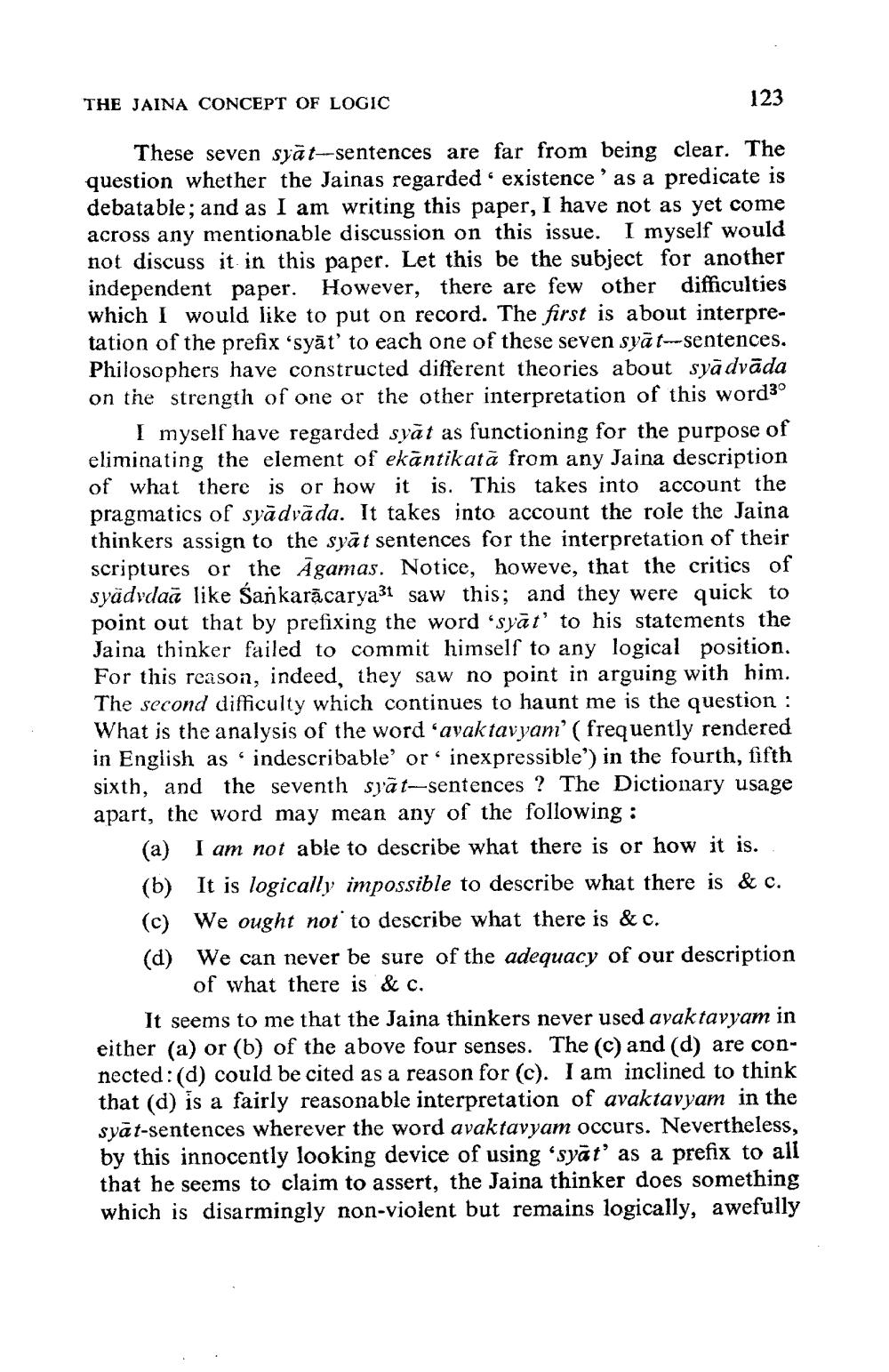________________
THE JAINA CONCEPT OF LOGIC
123
These seven syat-sentences are far from being clear. The question whether the Jainas regarded existence' as a predicate is debatable; and as I am writing this paper, I have not as yet come across any mentionable discussion on this issue. I myself would not discuss it in this paper. Let this be the subject for another independent paper. However, there are few other difficulties which I would like to put on record. The first is about interpretation of the prefix 'syat' to each one of these seven syāt-sentences. Philosophers have constructed different theories about syādvāda on the strength of one or the other interpretation of this word30
I myself have regarded syat as functioning for the purpose of eliminating the element of ekantikata from any Jaina description of what there is or how it is. This takes into account the pragmatics of syadvada. It takes into account the role the Jaina thinkers assign to the syat sentences for the interpretation of their scriptures or the Agamas. Notice, howeve, that the critics of syädvdaa like Sankaracarya3t saw this; and they were quick to point out that by prefixing the word 'syat' to his statements the Jaina thinker failed to commit himself to any logical position. For this reason, indeed, they saw no point in arguing with him. The second difficulty which continues to haunt me is the question: What is the analysis of the word 'avaktavyam' (frequently rendered in English as indescribable' or inexpressible') in the fourth, fifth sixth, and the seventh syat-sentences? The Dictionary usage apart, the word may mean any of the following:
(a) I am not able to describe what there is or how it is. (b) It is logically impossible to describe what there is & c. (c) We ought not to describe what there is & c.
(d) We can never be sure of the adequacy of our description of what there is & c.
It seems to me that the Jaina thinkers never used avak tavyam in either (a) or (b) of the above four senses. The (c) and (d) are connected: (d) could be cited as a reason for (c). I am inclined to think that (d) is a fairly reasonable interpretation of avaktavyam in the syat-sentences wherever the word avaktavyam occurs. Nevertheless, by this innocently looking device of using 'syat' as a prefix to all that he seems to claim to assert, the Jaina thinker does something which is disarmingly non-violent but remains logically, awefully




